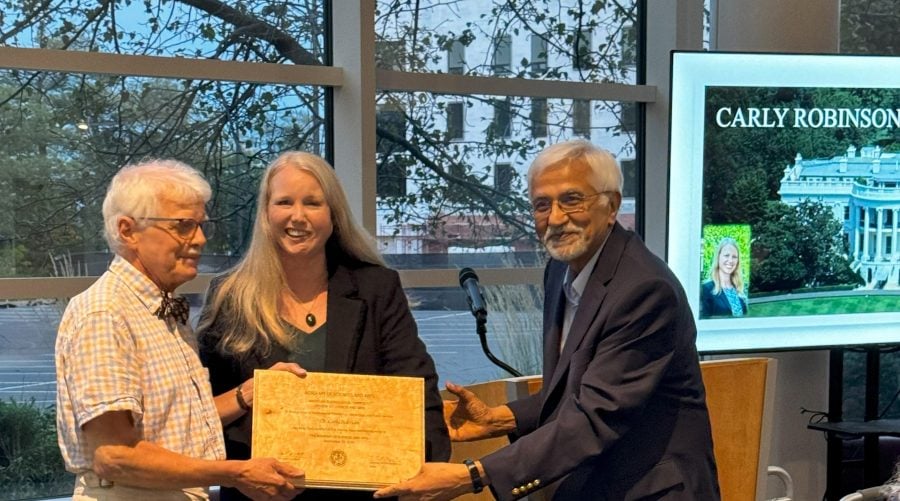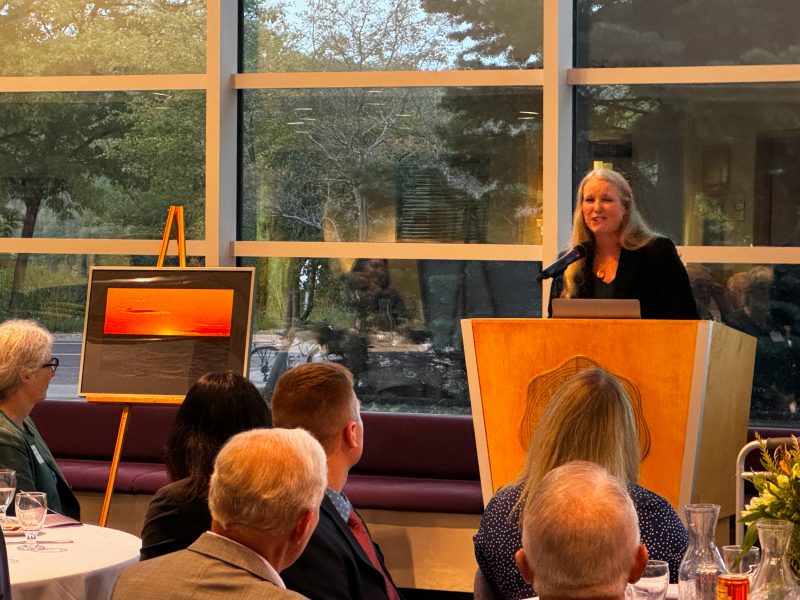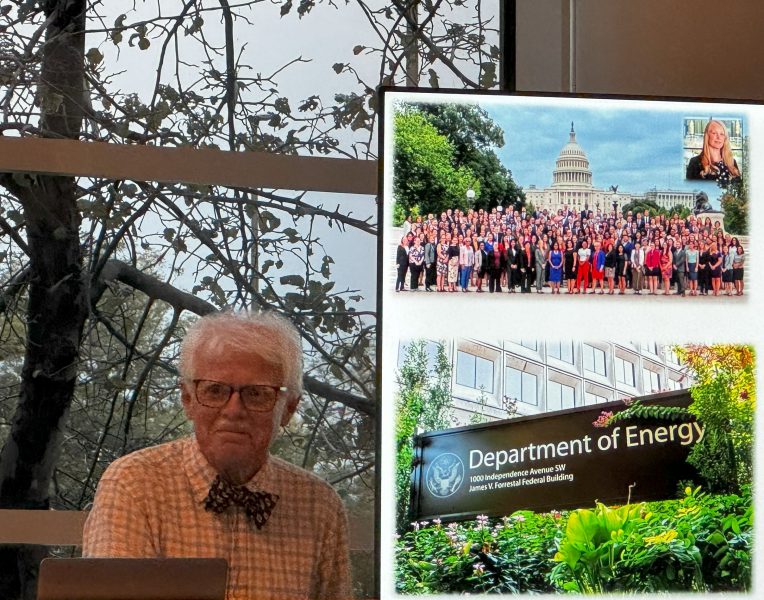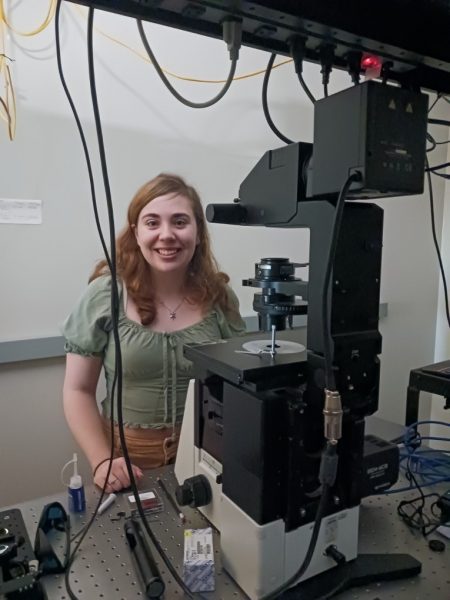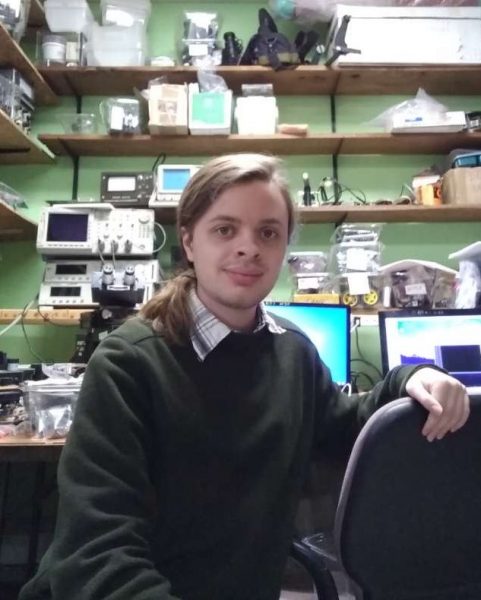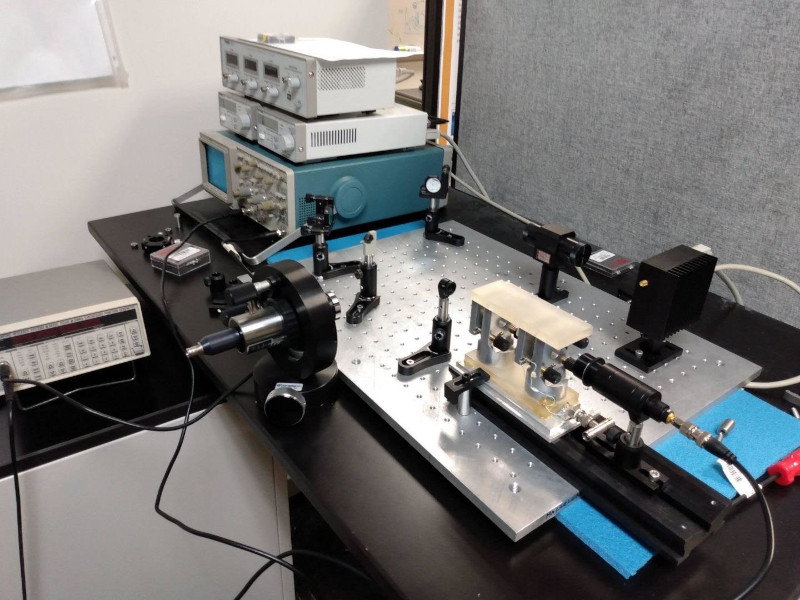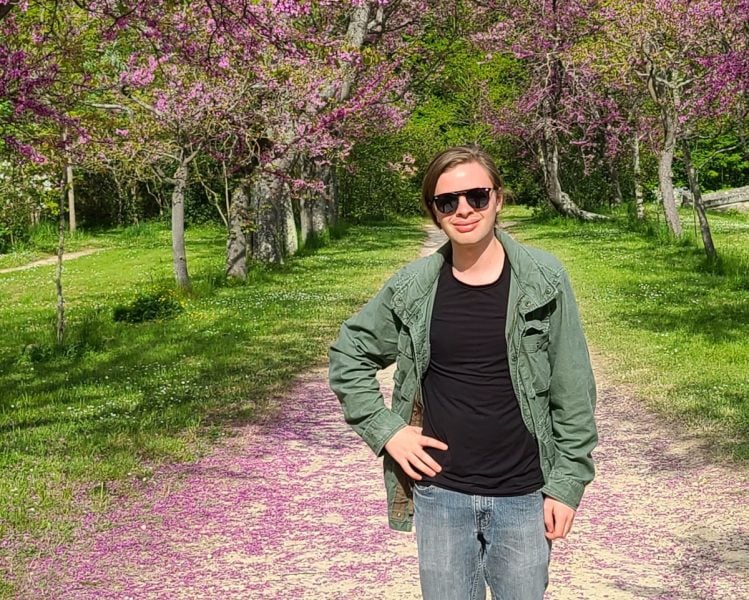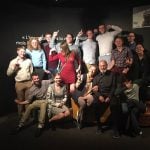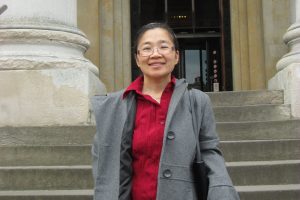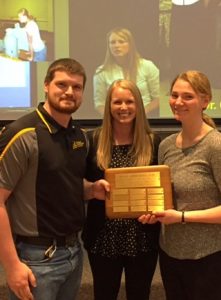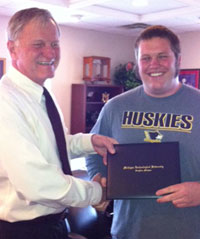The College of Sciences and Arts has inducted physics alum Dr. Carly Robinson (BS ’07) into the College of Sciences and Arts Academy.
Dr. Robinson currently serves as Assistant Director for Information Products and Services at the U.S. Department of Energy Office of Scientific and Technical Information. As an undergraduate at Michigan Tech, Robinson worked with Dr. Will Cantrell to study the effect of biomass burning on cirrus cloud formation.
The College of Sciences and Arts Academy recognizes Michigan Tech graduates who have distinguished themselves in their professions and made extraordinary contributions to the advancement of the College of Sciences and Arts, Michigan Technological University, and society.
About the Physics Department
Physicists at Michigan Technological University help students apply academic concepts to real-world issues. Our physicists take on the big questions to discover how the universe works—from the smallest particles to the largest galaxies. The Physics Department offers three undergraduate degrees and three graduate degrees. Supercharge your physics skills to meet the demands of a technology-driven society at a flagship public research university powered by science, technology, engineering, and math. Graduate with the theoretical knowledge and practical experience needed to solve real-world problems and succeed in academia, research, and tomorrow’s high-tech business landscape.
Questions? Contact us at physics@mtu.edu. Follow us on Facebook, Twitter, and YouTube for the latest happenings. Or read more at the Physics Newsblog.
